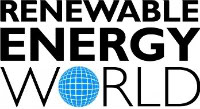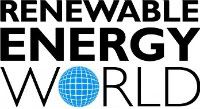My friend Cameron Atwood and I frequently discuss the underlying causes by which certain technologies are brought to market, where others never see the light of day. Here’s a small piece of a recent chat for anyone interested.
Cameron Atwood: Hey, Craig. Here is a link to YouTube videos featuring “free energy” inventions. http://www.youtube.com/watch?v=zu8LaVH-pn0.
Craig Shields: Thanks, but I’m deeply skeptical. It’s funny, I believe in certain conspiracy theories and not others. Regarding “free energy,” I have lots of Ph.D. level friends in industry who share my rock-solid belief in the conservation of energy. The world’s brightest minds have been trying to beat this law for centuries. The idea that some guy who also sells a Ginsu Knife or a Pocket Fisherman has made a breakthrough here doesn’t hold water with me. The concept that this guy is a fraud seems a million times more likely.
CA: Craig, do you know that there are studies that show hemp oil cures many types of cancer? The AMA isn’t beating a path to the fields to grow and process it — and neither are the pharma companies.
There are dozens of ulcer ‘treatments’ still being pushed on the market, even though bismuth salts (Pepto Bismol) kills the H. Pylori virus that is the main causative factor nearly all ulcers.
Carburation techniques and engine designs have been known for decades that would result in powerful vehicles running on the highways at 80 to 100 MPG, yet they don’t exist in this country because of the influence of Big Oil.
Los Angeles once had the best public transportation system in the world, and it was ripped out by competing interests including GM, Gulf and Firestone.
Cargill and ADM keep the government focused on corn ethanol when switchgrass and algae are proven superior – and as you’ve pointed out, solar-thermal is the very best form of entirely free energy just waiting to be harnessed.
In all these cases, We the People were and are quite effectively prevented, dissuaded, diverted from beating a path to the better choice.
I know there are millions of penny-ante charlatans out there hawking pie-in-the-sky, to-good-to-be-true solutions to all sorts of everyday challenges.
However, I also know that there are plenty of affluent and greedy bastards out there along with them who are constantly doing all they can to continue preventing, dissuading, diverting the public and concealing, bribing and destroying the best solutions to a wide array of life’s most troubling difficulties.
CS: If it doesn’t make them profit, the corporations are apt to suppresses it; I really don’t think there is no question about that. But the world of venture capital is at least as anxious to make a profit as the execs in the corporate boardrooms. And then you have the world of angel investors, most of whom honestly care about the world around them — of which there are thousands all over the world. Trust me, there are millions of people who would run 100 MPH towards clean, cheap energy.




 I happen to be looking through an issue of Car and Driver yesterday and noticed their discussion of the EPA’s struggle to measure and report MPG ratings for plug-in hybrids. Apparently, there are people who fail to realize that this is a completely meaningless number. Those who never exceed the battery-only range never need gasoline, and thus experience an infinite number of miles per gallon. Those who never charge their cars experience whatever number is associated with the size and efficiency of the internal combustion engine as it operates their car, given its weight, wind resistance, etc. Of course, most people will experience a number in between – say between 100 and 1000.
I happen to be looking through an issue of Car and Driver yesterday and noticed their discussion of the EPA’s struggle to measure and report MPG ratings for plug-in hybrids. Apparently, there are people who fail to realize that this is a completely meaningless number. Those who never exceed the battery-only range never need gasoline, and thus experience an infinite number of miles per gallon. Those who never charge their cars experience whatever number is associated with the size and efficiency of the internal combustion engine as it operates their car, given its weight, wind resistance, etc. Of course, most people will experience a number in between – say between 100 and 1000.
 My blog at
My blog at 
 I’ll never forget the first time I heard this expression — which is, of course, a rather crude way of asking if a certain product or service has appeal to one or more target market segments. I was sitting in a meeting with a few of my clients at IBM when someone asked me for my opinion on the subject. I tried to conceal that I felt vaguely insulted, as I had built my career around the process of asking and answering this question – and I guess I wasn’t flattered by having it reduced to level of unrefined simplicity.
I’ll never forget the first time I heard this expression — which is, of course, a rather crude way of asking if a certain product or service has appeal to one or more target market segments. I was sitting in a meeting with a few of my clients at IBM when someone asked me for my opinion on the subject. I tried to conceal that I felt vaguely insulted, as I had built my career around the process of asking and answering this question – and I guess I wasn’t flattered by having it reduced to level of unrefined simplicity.
 We see a great deal of social criticism, lambasting us Americans for being fat, lazy super-consumers. In that vein, frequent commenter Dan Conine writes:
We see a great deal of social criticism, lambasting us Americans for being fat, lazy super-consumers. In that vein, frequent commenter Dan Conine writes:
 In response to my rant on a few recent Supreme Court decisions, frequent commenter Dan Conine writes:
In response to my rant on a few recent Supreme Court decisions, frequent commenter Dan Conine writes:
 Earlier this week I wrote a post expressing my disgust over the US Supreme Court’s announcement that it had found major provisions of
Earlier this week I wrote a post expressing my disgust over the US Supreme Court’s announcement that it had found major provisions of